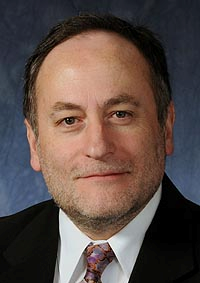(Prof. Emilio E. Bunel, Argonne National Laboratory, IL, USA)
The large-scale commercialization of new energy storage technologies is essential to the development of electric vehicles, as well as to distributed renewable electric power generation. To achieve the necessary transformational advances, Argonne has continued to build upon its historical leadership in battery research to create a broad research, development, and demonstration program centered on advanced energy storage materials and systems for both mobile and stationary applications.
Argonne is currently focusing on the development of more robust, safer, and higher-energy density lithium-ion batteries and the processes to manufacture them. In the near future, Argonne will make use of its fundamental science capabilities to develop storage materials that go beyond current lithium technology to dramatically increase storage capacity and power densities for electrification of the transportation sector.
In this presentation we will describe some of the highlights of the work currently underway targeted to provide the scientific basis for the discovery and implementation of new technologies to yield translational solutions to energy storage in support of DOE’s mission.
Biorgraphy of Prof. Emilio Bunel
Emilio Bunel received his M.S. in Chemical Engineering in 1980 from the University of Chile and his Ph.D. in chemistry from the California Institute of Technology in 1988. He began his professional career at DuPont Central Research as a member of the Catalysis Group working on new catalytic processes to produce nylon intermediates. In 2001 Bunel was hired by Eli Lilly to establish the Catalysis Group within the Discovery Research Organization. In 2003 he was appointed Associate Director at Amgen, Inc., and subsequently in January 2008, Research Fellow at Pfizer, Inc.
After spending twenty years in industry, in October 2008 Emilio Bunel was named director of the Chemical Sciences and Engineering Division at U.S. Department of Energy’s Argonne National Laboratory, where he is responsible for directing a science-based research, development, and early-stage engineering organization that conducts both fundamental and applied research in chemistry and chemical engineering.
One of the areas that he is responsible for is Electrochemical Energy Storage. This internationally recognized world-class center for lithium battery R&D where the integration of basic research, applied R&D, engineering, and battery testing, has resulted in new technologies currently being deployed by industry.
